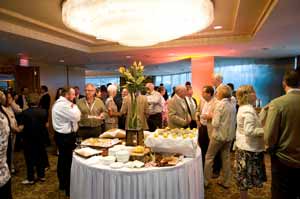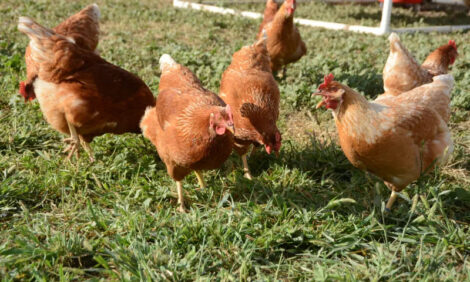



Five Hundred Egg Industry Leaders Met at IEC Conference
Egg industry leaders from around the world met in Canada in September for the International Egg Commission (IEC) conference.Developments in Egg Production Technology: Enriched Colony Systems
To help members prepare for current and future changes to legislation, IEC organised a seminar session specifically on new enriched colony egg production systems. This is of particular importance with bans in conventional cages in 2009 in Germany, 2012 EU and 2015 California.
The special seminar was led by five industry experts, who shared their research findings and practical experiences of enriched colony systems.
Delegates learned that the latest research shows that the production results using enriched colony systems are comparable to conventional cages, with possible improvements in mortality rates and feed conversion.
Experts attending the conference expressed confidence that enriched colonies will comply with animal welfare guidelines, including those in California. However, the latest figures show that in Europe in 2008, 278 million hens were in cage systems, but only 20 million – just seven per cent – of these were in enriched cages. Experts believe it is almost impossible to move the remaining 250 million hens across in the time left.
Consumers Taste with Their Eyes
IEC delegates in Canada had the fantastic opportunity to hear from one of the world's leading marketing experts, Dr Jan-Benedict Steenkamp. Dr Steenkamp is an acclaimed expert on branding and has advised many international blue chip organisations, including Proctor & Gamble, Unilever and Zurich Financial Services. Dr Steenkamp stressed to delegates the importance of branding their products, and urged them to use their product packaging effectively, making clear product statements that would help to differentiate their product from the competition.
He told the IEC delegates that consumers "taste with their eyes"; that although two eggs may taste the same, consumers make purchase decisions depending on the brand image. In the highly competitive egg industry, it is particularly important to present clearly the product's selling features to the consumer, whether it is the message of free-range eggs; organic eggs; or eggs that are rich in omega-3, delegates were told to capitalise on their branding, and give consumers an obvious reason for choosing their product.
The International Egg Commission is the only organisation dedicated to representing the egg industry internationally, bringing together a vast geographical network of people, all with one common objective, to succeed in the same industry. IEC conferences are held twice a year; in 2010 members will meet in Paris in April, and in September the conference will be held in Prague.









